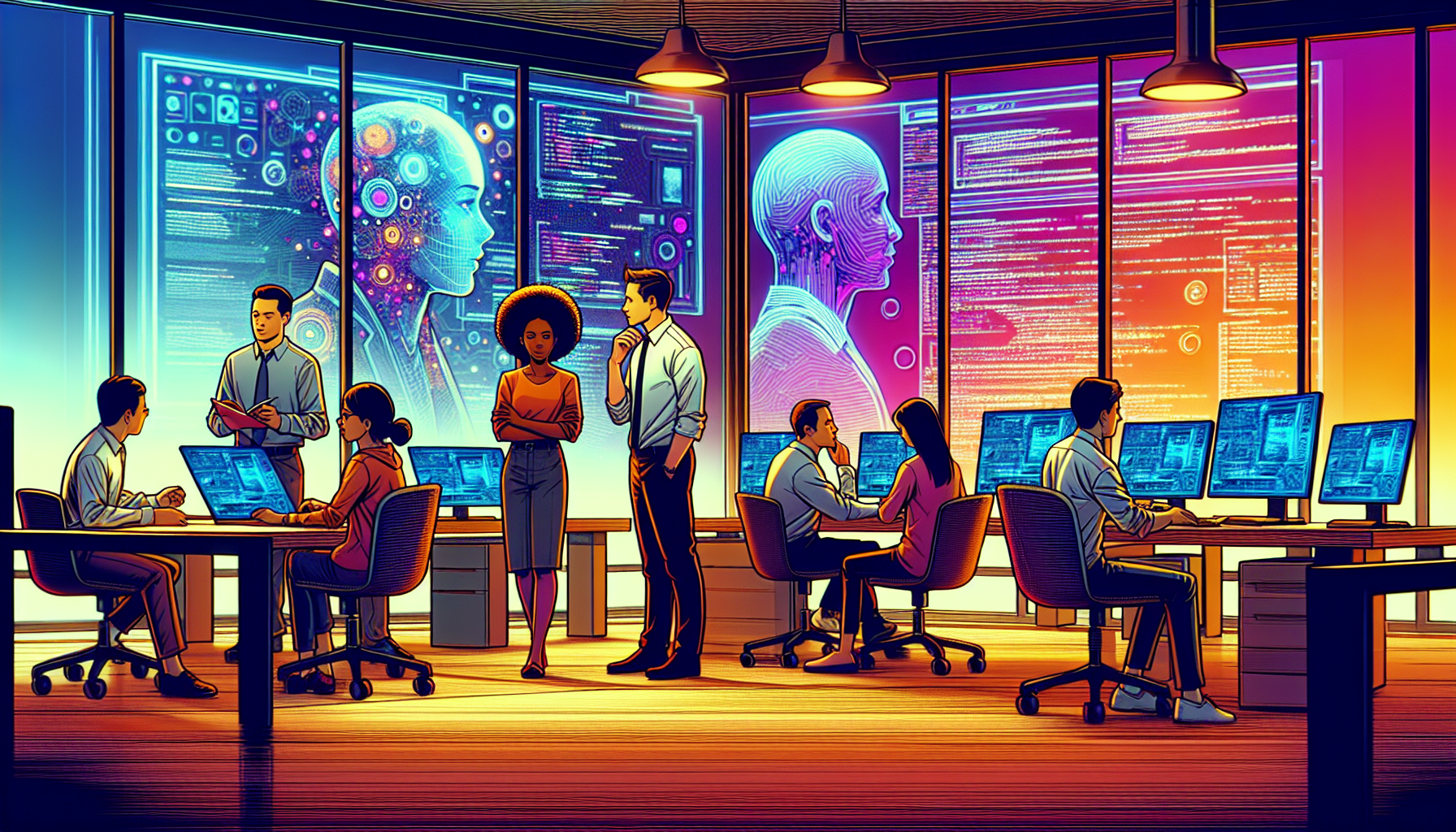Artificial intelligence (AI) continues to dominate headlines as companies unveil groundbreaking advancements and applications in the field. Here are today's significant developments regarding AI from leading firms and industry experts.
OpenAI Collaborates with Broadcom on New AI Chip
OpenAI has announced its collaboration with Broadcom Inc. to develop a specialized AI chip aimed at running AI models post-training. This initiative, which has been in planning for about a year, also involves consulting with Taiwan Semiconductor Manufacturing Co., recognized as the world's premier chip contract manufacturer. Sources close to the matter indicate that the discussions are in the preliminary phases, with the potential to revolutionize how AI models are executed more efficiently. Following the rapid advancement in AI technology, this chip could be pivotal for future applications and capabilities in the industry.
"Building high-performance chips specifically for assistance in inference tasks is essential for the sustained growth and application of AI technologies," said a representative familiar with the collaboration.
Google Reports AI-Generated Code Growth
At the third-quarter earnings call, Google CEO Sundar Pichai revealed that a remarkable 25% of new code generated this quarter at Google is created by AI, a significant indicator of AI's growing role within the company. Alphabet, Google's parent company, reported a staggering $88.3 billion in revenue, largely fueled by its AI-oriented services. It noted a sharp increase in revenue from Google Cloud services, attributed to AI infrastructures.
Pichai emphasized the importance of AI-enhanced products like customizable AI chatbots, automatic note-taking for Google Meet, and generative AI tools for YouTube creators. He also pointed to the launch of the highly-regarded Pixel 9 smartphone series, which incorporates numerous AI tools, further solidifying Google's commitment to integrating AI into its product ecosystem.
"AI is expanding the horizon of what our services can do," Pichai stated. "We’re committed to enhancing our offerings through innovative AI capabilities."
LinkedIn Unveils its First AI Recruitment Assistant
LinkedIn has launched a new AI tool, Hiring Assistant, aimed at streamlining the recruitment process for companies. This product facilitates various recruitment tasks, such as generating detailed job descriptions from simple notes and streamlining candidate sourcing and engagement. Currently available to a selected group of large enterprises, including AMD and Siemens, this AI assistant aims to alleviate the routine responsibilities of recruiters, allowing them to focus on higher-impact activities.
Hari Srinivasan, LinkedIn's VP of Product, described Hiring Assistant as a significant milestone for the platform. By automating repetitive tasks, it empowers recruiters to harness their time and skills more efficiently.
"With Hiring Assistant, we’re aiming to redefine the recruitment process and make it easier for our users," said Srinivasan.
The Future of Agentic AI Discussed by Ethan Mollick
Ethan Mollick, a professor at Wharton, recently shared insights on the emerging capabilities of AI systems like Anthropic's Claude, which can operate autonomously across computers. This "agentic AI" offers unprecedented advantages, allowing users to delegate tasks to AI without continuous oversight, showcasing a leap beyond traditional AI interactions.
Mollick describes his experiences with Claude, highlighting its abilities to strategize and adapt autonomously, illustrating how businesses must pivot to accommodate this new reality. His insights suggest that the workplace paradigm is shifting, pushing businesses to rethink their approaches to work and AI integration.
"As AI evolves, so must our understanding of its capabilities and limitations," Mollick emphasized. "Businesses are at a crossroads where they need to embrace these powerful tools while managing the changes they bring."
Conclusion
As AI technology continues to evolve rapidly, major players like OpenAI, Google, and LinkedIn are leading the charge in various sectors, from recruitment to codification. The implementation of AI is not just reshaping products but also transforming the way industries operate. This rapid advancement leads to exciting opportunities and challenges that businesses must navigate as they adapt to this increasingly sophisticated landscape of artificial intelligence.

